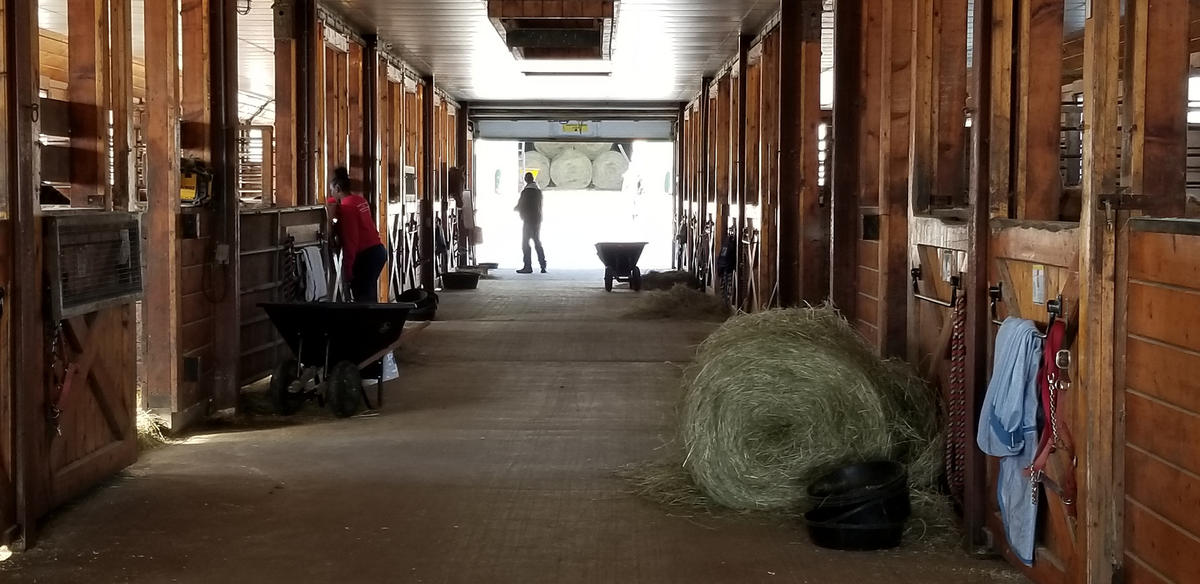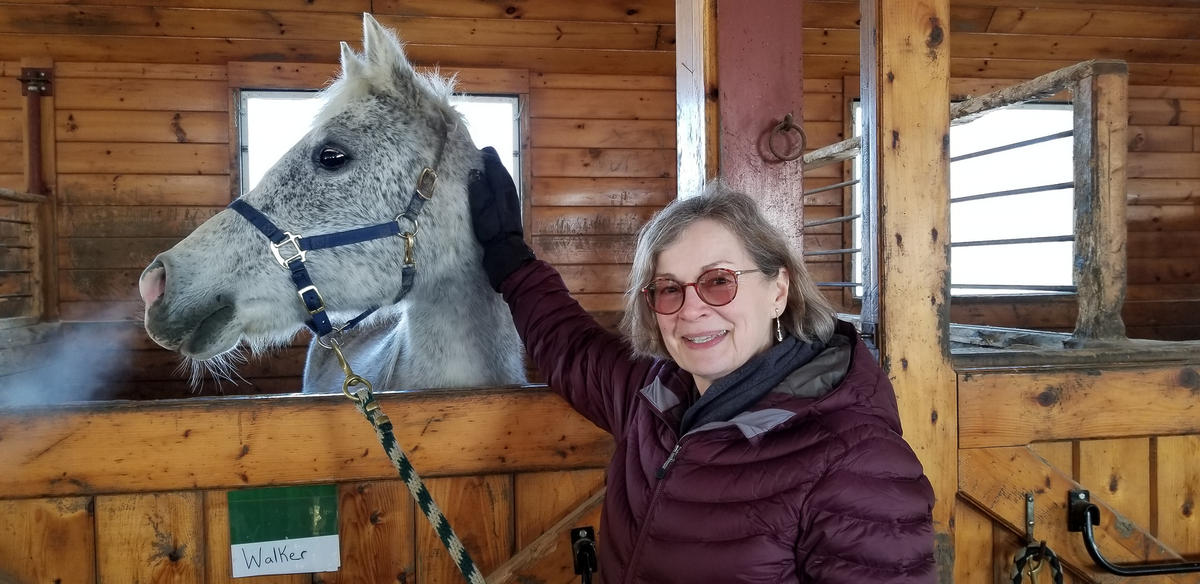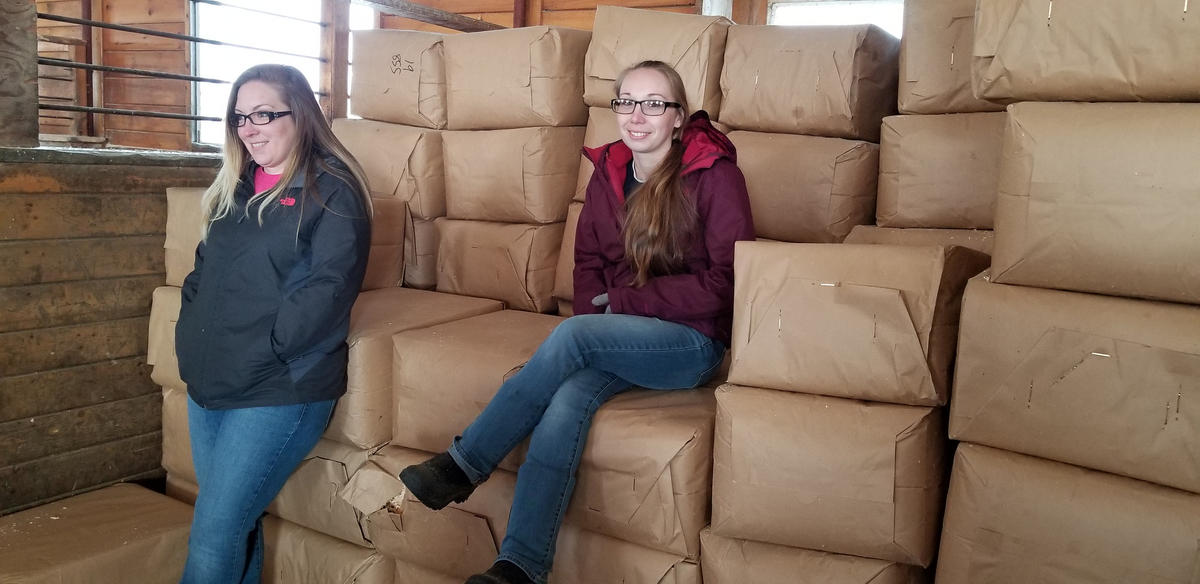Maine Rescue Offers Second Chances to Volunteer Inmates and ‘Broken’ Horses
A few years ago the Maine State Society for the Protection of Animals in Windham was struggling financially.
As New England’s largest horse rescue, the nonprofit farm was trying to care for more horses than it could comfortably manage, facilities were in need of an upgrade and some staff were let go. But recently, the society celebrated several milestones, including a major renovation, a budget on the rebound and the completion of 5,000 volunteer hours by some caretakers who’ve become a mainstay: inmates from the women’s prison across the street.
The 40 or so abused and neglected horses and the women who’ve been sentenced to the Maine Correctional Center share something in common, says Meris Bickford, CEO of the MSSPA.
“Some of them are broken. Yet they can recover and they can be rehabilitated and they can go on to wonderful, happy, productive lives,” she says.
“All four horses, when they came in, were pretty much skeletons with fur. Really, really shockingly thin and one needed a medical procedure and had to be shipped out of state for an abdominal hernia, which was quite painful. These horses, I think, without intervention, probably would have been dead within a fairly short time, within weeks,” she says.
It took the horses several months to start putting on weight and getting back in shape, but Bickford says they are lively, well-trained and good candidates for adoption.
Dozens of volunteers helped nurse them back to health, including Sarah Fuchswanz, who has been working at the farm for five months. Grooming is one of her favorite parts of the job.
But as a person in recovery, she says taking care of these horses has been more physically and emotionally rewarding than she ever could have imagined.
“It just feels so good to give back. It’s something that I never really did in my spare time and I never knew how good it felt and it’s something I want to continue doing. I do know that,” she says.
“I was really nervous at first but I fell in love with a horse and I just love coming here every chance I get,” says Carrisa Butkewicz, who like Fuchwanz hadn’t been around horses much before she started volunteering.
Like so many other women inmates, Butkewicz is serving time for a drug-related crime. With the good time she has earned through volunteering, she’ll be getting out in June. Until then, she is spending time with Tavish, an older horse she describes as “calm and sweet.”
Their bond, she says, and the support of the other volunteers and staff, has been transformative.
“It made me appreciate life. It really did, knowing that this place is so wonderful, to give them a second chance and to give also us a second chance, it just really made me appreciate everything, not to take anything for granted,” Butkewicz says. “Everyone needs love whether you’re a horse or a person.”
Warden Scott Landry says the partnership between the prison and the horse rescue has worked out so well that there are now as many as eight women inmates volunteering several hours a day at the barn, seven days a week. But it did take a leap of faith from the Department of Corrections and a change in prison policy.
“Traditionally, minimum custody women are not allowed to work without a correctional employee directly supervising them, and in the policy we made it an exception so that minimum custody women are able to come here and work without our staff,” he says.
Bickford says the MSSPA wouldn’t be operating at its current level without the inmates’ assistance. And as far as the women are concerned — there’s no better way to spend their time.
Story courtesy of Susan Sharon and Maine Public: http://www.mainepublic.org/post/maine-rescue-offers-second-chances-volunteer-inmates-and-broken-horses


